When the model Chrissy Teigen recently posted about her pregnancy loss, she laid bare an experience that many women keep private.
Miscarriage is all too common; in Australia, around one in four pregnancies ends before 20 weeks. It’s also intensely personal, and an experience that many couples are reluctant to talk about. As a result, although most women go into pregnancy appreciating that there’s a potential to miscarry, they don’t fully understand what that means or how it will unfold.
This month is Pregnancy Loss Awareness Month, and we’ve spoken to six women about their miscarriages – and what took them by surprise.
“I was angry for a couple of months”
Eleanor Pendleton is the founder of Gritty Pretty, and the mother to a baby boy.
Being a mother was something I had dreamed of for a very long time, and my husband, Mat, and I decided to start trying for a family about six months after we got married.
We were fortunate to fall pregnant the first time. We saw an obstetrician for an early dating scan, and we started to imagine the family and the life we were going to have. I was due to be a bridesmaid at a girlfriend’s wedding and I remember thinking, ‘Oh well, I’ll be pregnant at her wedding’.
Then the day after Australia Day – I remember it so clearly – I went to the bathroom and saw I was bleeding. I just knew straightaway. I tried not to cry. I told myself I just needed to go down to the ocean and collect myself. We went for a swim, but when I came back the bleeding was heavier. I just collapsed in a heap on the bathroom floor. I cried like an animal.
When we went to the ED, it was confirmed I was miscarrying. It was an awful, awful day. I was only seven weeks pregnant, but I was already so attached to this baby.
I didn’t get out of bed for about a week. At first, I was sad, but I also felt so wildly out of control. That was closely followed by anger. I was probably angry for a couple of months.
I didn’t get out of bed for about a week. At first, I was sad, but I also felt so wildly out of control.
Being a control freak, I tried to control my grief. I saw a psychologist, a grief counsellor and an acupuncturist.
I also felt desperate to be pregnant again. That was my coping mechanism. I remember Googling and trying to find stories of women who had lost their babies at the exact same time as me to work out how long it took them to conceive again.
Ultimately, though, what that pregnancy taught me is that sometimes you just have to surrender. And I’m grateful to that first baby because I wouldn’t have my [nine-month-old baby] Banjo if it hadn’t been for that experience. But it affected me deeply.
“I wasn’t prepared for the intense pain”
Nikki Jurcutz is a paramedic and the co-founder of Tiny Hearts Education in Melbourne. She has two children and recently had her second miscarriage.
It started on Sunday afternoon at home. One moment I was completely fine. Then suddenly one painful surge came after the next. Fast forward five minutes, and I couldn’t speak. I was doubled over in pain.
As a paramedic, I’ve attended many women who have experienced a loss. But I wasn’t prepared for the intense physical pain of miscarrying naturally.
This was my second miscarriage. The first was in 2016 and I had a D&C [dilation and curettage to clear the uterus]. This time, a scan showed that I was miscarrying – I was supposed to be nine weeks’ pregnant but I was only measuring six weeks – and I opted to miscarry naturally.
I was in intense pain for about two hours that Sunday. I was lying in my shower, trying to control my breathing and hide the pain from my three-year-old daughter, who wanted to be right next to mummy. Meanwhile, the shower base was red, clots were gathering around the drain and the pain was making me vomit.
I was lying in my shower, trying to control my breathing and hide the pain from my three-year-old daughter
Then the pain suddenly stopped… I got out of the shower, sat on my bed and felt a drop and sensation of pressure.
And there it was; the most confronting part of this entire ordeal. A recognisable intact small placenta. I burst into tears. The pain now made sense. My baby had stopped growing at six weeks, but my body didn’t realise this. It had continued acting like I was pregnant. My uterus had continued to grow, and so did the placenta.
I wish I had known that I would have contractions. I wish I had arranged for my children to be looked after by a family member, and I wish I knew that I could have planned something to do with that bub, once I had passed it, like plant a tree. Flushing it all away would haunt me, probably forever. I wish I had known that this experience can be traumatic and awful, but most of all I wish I had known I was not alone, and that this was normal.
Nikki has posted about her experience in more detail here on her Instagram page.
“I put on a happy face”
Grace O’Carroll works in property management in Newcastle.
My partner and I had been together for about four years when I fell pregnant. We weren’t actively trying, but we weren’t not trying.
It was exciting – we told our family and close friends and went in to see the doctor to book a scan. But then two or three days later, I started feeling mild cramps. I didn’t go to hospital, I just went to bed, hoping it might be an appendix-related thing. I think I was in denial.
By about 11pm the pain had become so bad that I couldn’t sleep. It was definitely the worst pain I’ve ever been in – it stretched up my whole torso all the way up to my neck and down to my groin.
We could have gone to hospital that night but I was still waiting it out, hoping it might go away. First thing the next morning, I was diagnosed as having an ectopic pregnancy, which is where the embryo grows in the wrong place. I was already bleeding internally and so the doctors took me into surgery.
The physical recovery wasn’t too bad. It was the emotional healing I wasn’t prepared for. It was an actual grief, not just a sad thing that happened. I hadn’t realised that when you find out you’re pregnant, you fall in love with this little being. I didn’t appreciate just how quickly that love can take hold.
The day after the surgery, my partner had to return to Canada for work, so I stayed with his extended family. They were really lovely, but I couldn’t just be a mess on the couch all day in my pyjamas. I’m a New Zealander, and being at home with my sister and mum would have made all the difference, but I would have had to deal with quarantine and paying for that.
So, I helped cook dinner and clean up and I put on a kind of mask. I felt so fake. Here I was laughing at things when I wasn’t happy at all. Why? I suppose I didn’t want to make other people feel uncomfortable.
I put on a kind of mask. I felt so fake.
Now, six months on I can talk about it much more easily. I’ve found out that other friends have gone through the same thing this year, but they didn’t speak about it either. I would really recommend finding someone to talk to, whether that’s a close family member or someone from an organisation like Pink Elephant.
“I went into my subsequent pregnancies with anxiety”
Anna Saunders is the co-founder of PRIMER, has two children and lives in Sydney.
My first miscarriage happened while I was living in London. I’d been diagnosed with endometriosis, and after having it removed, my doctor encouraged me to start thinking about babies – now. I would have trouble conceiving, she told me… if I could fall pregnant at all.
Instead, I fell pregnant immediately – and, truthfully, I was shocked. We were living in East London at the time, going out every weekend, travelling a lot, working hard. I had just started getting my head around how much our lives were about to change when I started bleeding.
I knew that miscarriage was a possibility – my mum had had several – but I understood very little about the process itself. I’d imagined miscarriage happened all at once, like childbirth.
Instead, mine played out over four or five days… and I just went to work as normal. Each day, the pain was always worse by the afternoon and I’d come home from work, and lie down. I spent those days and the subsequent weeks feeling dazed, the surprise of pregnancy compounded by the shock of miscarrying and the turbulence of lingering pregnancy hormones.
Each day, the pain was always worse by the afternoon and I’d come home from work, and lie down
My second miscarriage happened after we’d arrived back in Australia. This time, there was less shock and more sadness. I also chose to have a D&C rather than miscarrying naturally. But again, I returned to work the afternoon of the scan, telling no one at work.
I’m not sure why. Maybe I was worried about revealing to my boss I was trying for a baby? Perhaps it seemed easier not to dwell on it? Or maybe the prospect of revealing something so personal and then managing other people’s responses was too overwhelming to contemplate?
Whatever the case, I went into my third pregnancy feeling anxious. Every time I went to the bathroom I would check I wasn’t bleeding. Every morning, I’d wake early, at 4 or 5am. Fortunately, the pregnancy was a success – but my anxiety didn’t subside. Now I have two beautiful children. But I wish I’d understood the impact that miscarriages would have – even on subsequent, successful pregnancies.
“Each of my three miscarriages was different”
Darelle Tasker is a marketing and communications coordinator who lives in Adelaide. Since the birth of her son, who’s two and a half, she has had three miscarriages
“I’m 11 weeks pregnant, but yesterday I had a scan and there was no heartbeat. The woman who was scanning me was looking at the screen and then she put her hand on mine, and she had tears in her eyes. My heart just dropped. I said, ‘It’s not good, is it?’ And she said, ‘I’m sorry.’ I just broke down.
This is my fourth pregnancy and third miscarriage. The first time it happened, I remember I was folding laundry when I started bleeding, lightly at first and then more heavily. I was frightened, so I went to the hospital but they sent me home.
The next day, during Mother’s Day dinner with my family, I was bleeding so much I kept rushing to the toilet, passing thick, large clots, like my insides were falling out. It was so traumatic; I had this fear of what I was going to see on the toilet paper, that I was going to see the sac or the baby. I ended up having a D&C the next day, and I feel bad saying this but it was a relief.
I ended up having a D&C the next day, and I feel bad saying this but it was a relief.
With my next pregnancy, I was excited but also fearful – always, in the back of my mind, I felt that things could fall apart. I reached 12 weeks, but sitting on the couch one evening at the end of March I felt a gush and saw blood. It was a missed miscarriage; the baby hadn’t grown past nine weeks. At ED, they gave me misoprostol and sent me home to have a ‘natural’ miscarriage. The experience was so horrific and drawn out over two weeks. There was retained product and I had to keep returning to the hospital and taking more tablets. I felt dizzy and light-headed.
The eight-week scan for this pregnancy was fine, but a couple of weeks ago I felt my symptoms, like nausea, had diminished. It was an instinct. So I booked a GP appointment and asked for a scan.
I’m going to the hospital tomorrow and I’m going to ask for a D&C. I don’t want to go through [a natural miscarriage] again.”
“I couldn’t go through it again”
Angela Reynolds has a son, 21, and a daughter, Evelyn, who’s five. In 2018, she had three miscarriages before deciding not to try for another child
On Australia Day, I started to get some spotting, which hadn’t happened with my previous children, and it quickly became clear I was having a miscarriage. I didn’t know what to expect; my obstetrician said it was going to be like a heavy period, which was an understatement.
I was at home when the bleeding increased. I spent a lot of time in the shower, then that night I remember distinctly being on the toilet and feeling that sort of everything came out. I really struggled with that, I felt guilty as a mum. But what are you meant to do? I didn’t know.
I had counselling after my second miscarriage, which happened at seven weeks. Everything was becoming a struggle, I felt lethargic and I was devastated mentally. Every period triggered memories. The therapist helped me to be less hard on myself. You feel guilty for thinking you want to forget for a minute, because it hurts, but of course you don’t want to forget either.
After my third miscarriage I knew we had to make a decision about whether we could put ourselves through it again. We were fearful of the ‘what ifs’, and the statistics around my age were horrifying. I do wish we’d started trying for another baby soon after Evelyn was born – maybe things would have been different? But you just don’t know.
Have you experienced pregnancy loss or know someone who has? Support is available. These organisations are here to help:




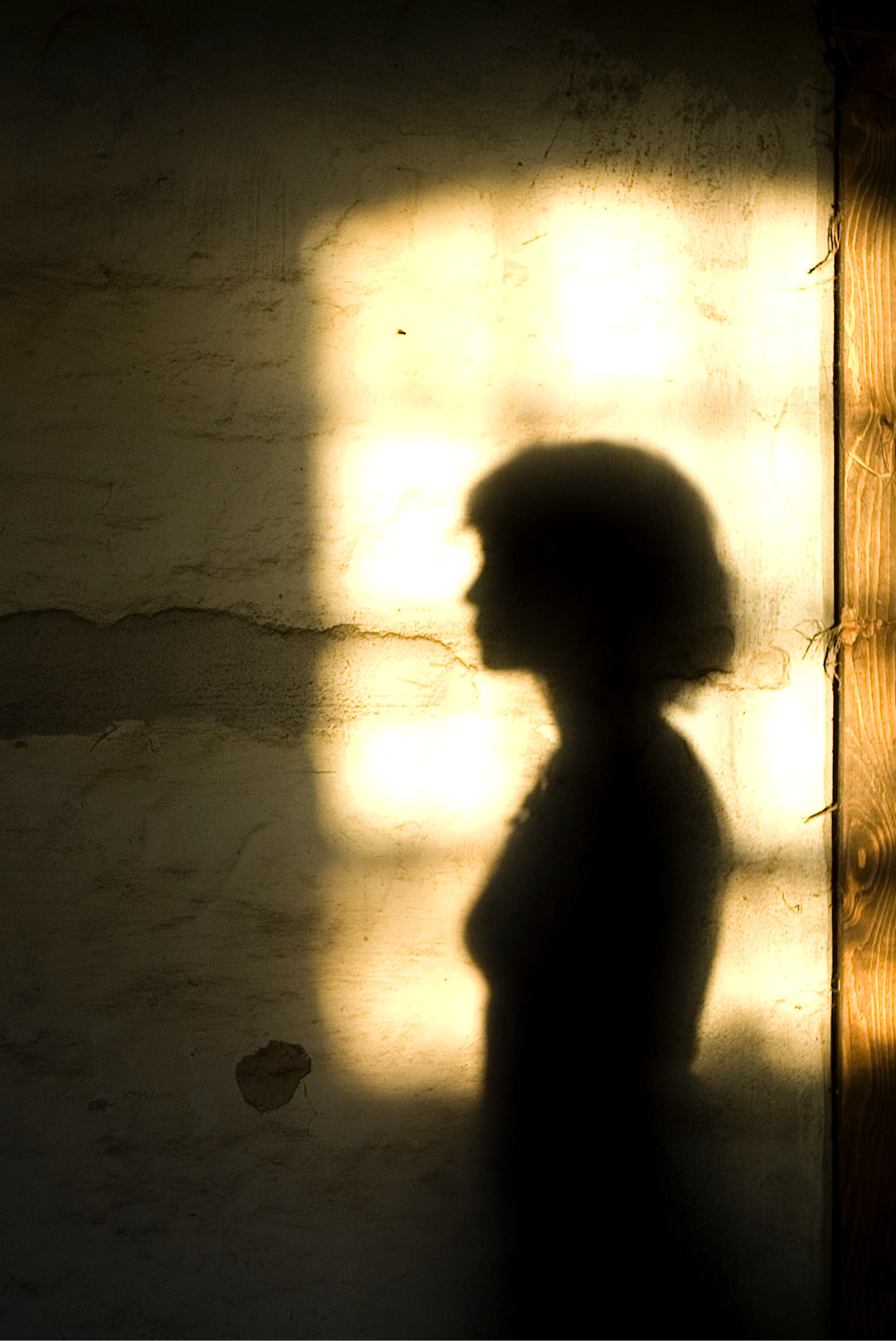
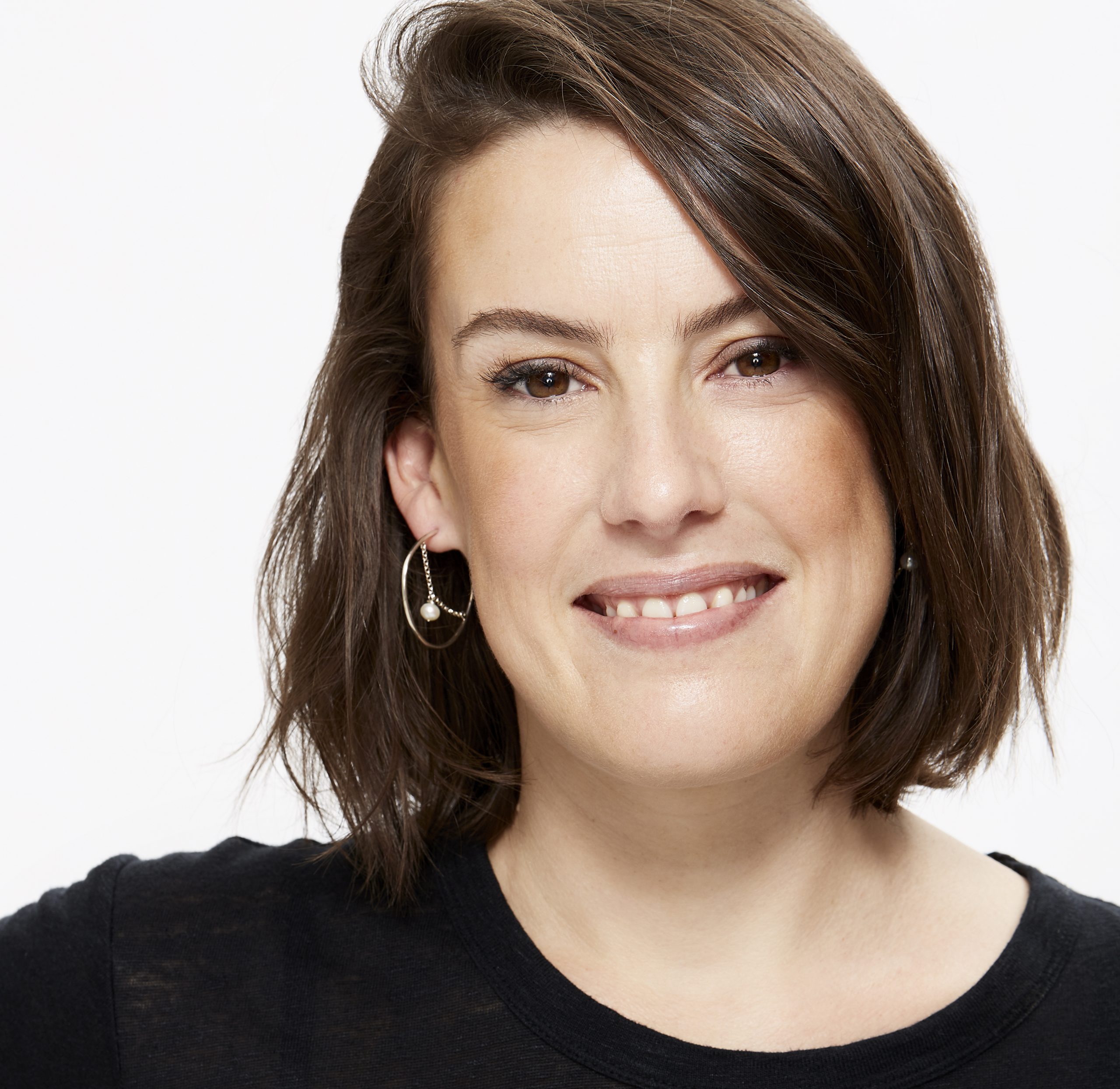



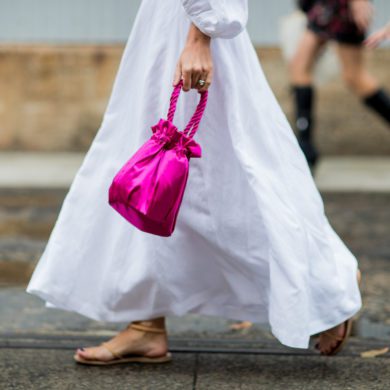
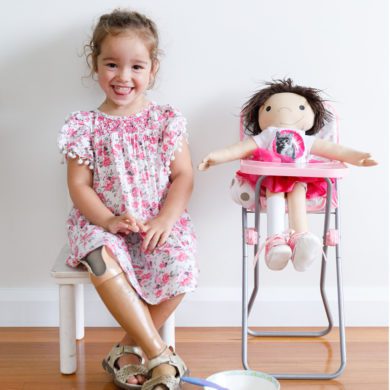
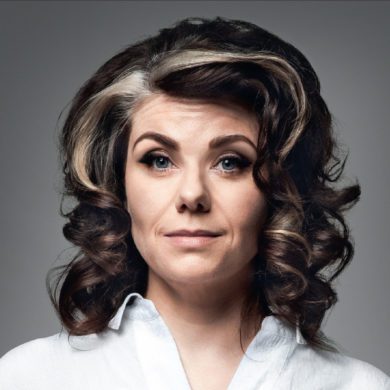


1 Comment